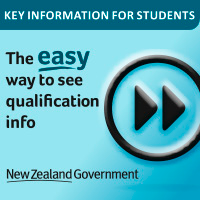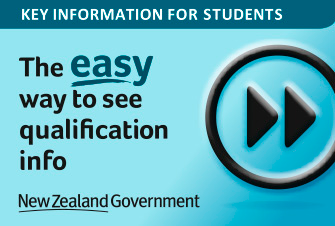Programme overview
* Please note that this programme will not be offered in 2025
This programme will equip you with the knowledge and experience to make a difference in the community as a practising social worker.
Taught by registered social workers and internationally recognised academics, you will learn through an integrated approach that combines a variety of disciplines – including psychology, sociology and law. You will also spend approximately 24 weeks out on practicum, experiencing first-hand what it’s like to be a social worker.
This is a professional qualification, recognised by the New Zealand Social Workers Registration Board. This means you will be eligible to apply for registration here and overseas.
Programme structure
This is a four-year degree programme in which you’ll have the opportunity to enter into the Bachelor of Social Work (Honours) programme in Year 4. The sample programme structure outlined below is for the Bachelor of Social Work. For its unique programme structure in Year 4, please see the Bachelor of Social Work (Honours)
Most students need to take one or two General Education courses.
Students should also be aware of the University’s Academic English Language Requirement.
Sample programme structure
Year 1 120 points
-
- Code:
- SOCWORK 100
- Name:
- Ko Wai Au, Ko Wai Koe, Ko Wai Tātou?
- Type:
- Compulsory core course
- Points:
- 30 pts
-
- Code:
- SOCWORK 101
- Name:
- Social Work and Social Justice
- Type:
- Compulsory core course
- Points:
- 30 pts
-
- Code:
- SOCWORK 102
- Name:
- He Tāngata: People in Context
- Type:
- Compulsory core course
- Points:
- 30 pts
-
- Type:
- General Education course
- Points:
- 15 pts
-
- Type:
- General Education course
- Points:
- 15 pts
Year 2 120 points
-
- Code:
- SOCWORK 200
- Name:
- Ngā Pou for Mana-enhancing Practice
- Type:
- Compulsory core course
- Points:
- 30 pts
-
- Code:
- SOCWORK 201
- Name:
- Culturally Responsive Practice
- Type:
- Compulsory core course
- Points:
- 30 pts
-
- Code:
- SOCWORK 202
- Name:
- Law, Policy and Social Action
- Type:
- Compulsory core course
- Points:
- 30 pts
-
- Code:
- SOCWORK 221
- Name:
- Social Work Theories and Skills
- Type:
- Compulsory core course
- Points:
- 30 pts
Year 3 120 points
-
- Code:
- SOCWORK 311
- Name:
- Social Work Process and Practice
- Type:
- Compulsory core course
- Points:
- 15 pts
-
- Code:
- SOCWORK 312
- Name:
- Applied Social Research
- Type:
- Compulsory core course
- Points:
- 15 pts
-
- Code:
- SOCWORK 315
- Name:
- Organisations and Management
- Type:
- Compulsory core course
- Points:
- 15 pts
-
- Code:
- SOCWORK 317
- Name:
- Supervised Field Practice and Professional Development 1
- Type:
- Compulsory core course
- Points:
- 30 pts
-
- Code:
- SOCHLTH 313
- Name:
- Mental Health in Social Practice
- Type:
- Compulsory core course
- Points:
- 15 pts
-
- Code:
- SOCCHFAM 332
- Name:
- Working with Children and Families
- Type:
- Compulsory core course
- Points:
- 15 pts
-
- Type:
- Elective course
- Points:
- 15 pts
Year 4 120 points
-
- Code:
- SOCWORK 426
- Name:
- Practice with Communities
- Type:
- Compulsory core course
- Points:
- 15 pts
-
- Code:
- SOCWORK 411
- Name:
- Social Work Interventions for Best Practice
- Type:
- Compulsory core course
- Points:
- 15 pts
-
- Code:
- SOCWORK 413
- Name:
- The Social Work Discourse
- Type:
- Compulsory core course
- Points:
- 15 pts
-
- Code:
- SOCWORK 414
- Name:
- Research and Evaluation in Social Practice
- Type:
- Compulsory core course
- Points:
- 15 pts
-
- Code:
- SOCWORK 415
- Name:
- Supervised Field Practice and Professional Development 2
- Type:
- Compulsory core course
- Points:
- 30 pts
-
- Code:
- SOCHLTH 432
- Name:
- Working with Grief and Loss
- Type:
- Compulsory core course
- Points:
- 15 pts
-
- Code:
- SOCWORK 401
- Name:
- Statutory Social Work
- Type:
- Compulsory core course
- Points:
- 15 pts
2024 entry requirements
My highest qualification is from:
Secondary school qualifications
If you're joining us from secondary school, here's what you need to enter the programme.
You are guaranteed entry to this programme if you meet these requirements.
- First, you must meet the University Entrance (UE) standard.
- You must also meet the rank score for this programme. Not sure about your rank score? Use our rank score calculator.
- You may need to have studied certain subjects or achieved credits in particular subjects.
- Some programmes have additional requirements, such as an interview, portfolio or references.
Guaranteed rank score, subject and other requirements
If your rank score is slightly lower than the guaranteed score, we encourage you to still apply. We will consider your application if places are available. If you don’t meet the requirements, you may be able to apply under our Undergraduate Targeted Admission Schemes.
-
QualificationNCEA National Certificate of Educational AchievementScore required150
-
QualificationCIE Cambridge International ExaminationsScore required150
-
QualificationIB International BaccalaureateScore required26
Read more about entry requirements for New Zealand secondary school applicants.
Further requirements
Admission is subject to a police check/s, safety checks* and referees’ reports. You may be required to attend an interview.
You will be required to sit literacy tests if you have been out of the New Zealand school system for more than one year.
You will need to hold a full driver’s license by the end of Year 2 in order to go on your Year 3 practicum.
Tertiary qualifications
If you've studied at a tertiary institution, here's what you need to enter the programme.
You can transfer from another tertiary institution, or another University of Auckland qualification, if you meet these requirements.
Minimum grade requirements
These are the likely grades required, but they do not guarantee entry. Applicants may require higher grades to gain entry to this programme.
-
Grade requiredGPA Grade Point Average 2.4
-
Grade requiredGPE Grade Point Equivalent 2.4
Further requirements
You must have completed one semester of successful bachelor degree study from a New Zealand tertiary institution, or one year of successful study as part of an acceptable sub-degree qualification from a New Zealand tertiary institution.
Admission is subject to a police check/s, safety checks* and referees’ reports. You may be required to attend an interview.
You will need to hold a full driver’s license by the end of the second year in order to go on your third year practicum.
*Read the Compliance with the Vulnerable Children Act 2014.
Transfer of Credit - You can apply for transfer of credit for tertiary courses completed elsewhere as part of your Application for Admission. For more information, see External transfer of credit.
If you have completed study at another New Zealand University, get an estimate of the transfer credit you may be eligible for, using our Transfer Credit Calculator.
Other pathways to study
You could be eligible for another programme, or check out these alternative pathways:
- See if you meet the criteria for the Undergraduate Targeted Admission Scheme (UTAS).
- Bridge your educational gap with a preparation and foundation programme.
- If you are 20 on or before the first day of semester, have no formal University Entrance (UE) qualification, and are a New Zealand or Australian citizen or permanent resident you can apply for special admission.
- If you are under 20, have no formal University Entrance (UE) qualification, and are a New Zealand or Australian citizen or permanent resident you can apply for discretionary entrance.
- If you can demonstrate outstanding academic achievement and maturity, we offer admission to applicants under 16.
My highest qualification is from this country or region:
Secondary school qualifications
If you're joining us from secondary school, here's what you need to enter the programme.
You need to have one of the following:
- International Baccalaureate Diploma with a minimum total score of 24.
- General Certificate of Education (GCE) Advanced Level. You must have completed a minimum of three A-Level subjects.
- Cambridge International Examinations (CIE). You must have completed a minimum of three A-level subjects.
GCE ‘A’ Level requirements apply to ‘A’ Level qualifications examined by bodies such as AQA, OCR, Edexcel, WJEC, CCEA and Pearson Education Limited taken outside of New Zealand.
Minimum grade, subject and other requirements
Minimum requirements listed here are the likely grades required and do not guarantee entry. We assess each application individually and applicants may require a higher grade to be offered a place. Your CIE/GCE A level score is calculated on the best three academic subjects and General Studies cannot be included.
-
QualificationIB International Baccalaureate DiplomaScore required26QualificationIELTS Academic International English Language Testing SystemScore required6.5
No bands less than 6.5.
-
QualificationGCE A Level/CIE General Certificate of Education Advanced LevelScore requiredCCCQualificationIELTS Academic International English Language Testing SystemScore required6.5
No bands less than 6.5.
Further requirements
Admission is subject to a police check/s, safety checks and referees’ reports. You may be required to attend an interview.
You will need to hold a full driver’s license by the end of the second year in order to go on your third year practicum.
Tertiary qualifications
If you've studied at a tertiary institution, here's what you need to enter the programme.
You can transfer from another tertiary institution if you meet these requirements.
You need to have the following:
One year successful bachelor-degree level study at a recognised university (or similar institution) overseas.
Minimum grade requirements
These are the likely grades required, but they do not guarantee entry. Applicants may require higher grades to gain entry to this programme.
-
Grade requiredGPE Grade Point Equivalent 2.4
-
QualificationIELTS Academic International English Language Testing SystemScore required6.5
No bands less than 6.5.
Further requirements
Admission is subject to a police check/s, safety checks and referees’ reports. You may be required to attend an interview.
You will need to hold a full driver’s license by the end of the second year in order to go on your third year practicum.
Other pathways to study
You could be eligible for another programme, or check out these alternative pathways:
- Bridge your educational gap with a preparation and foundation programme.
- If you have an offer of place from us that is conditional on meeting English language requirements, you may be considered for English Pathway courses from the University of Auckland English Language Academy (ELA)
- If you are 20 on or before the first day of semester, have no formal University Entrance (UE) qualification, and are a New Zealand or Australian citizen or permanent resident you can apply for special admission.
How much does a Bachelor of Social Work cost per year?
2024 fees
- Domestic students
- NZ$6,778.80*
- International students
- NZ$37,085*
Fees are set in advance of each calendar year and will be updated on this website. Fees are inclusive of 15% GST, but do not include the Student Services Fee, course books, travel and health insurance, or living costs. Amounts shown are indicative only. In addition to the tuition fees, there is a Student Services Fee of $8.88 per point, estimated at $1,065.60 for full-time study (120 points). Fees will be confirmed upon completion of enrolment into courses.
*Please note: amounts shown are indicative and estimates only.
Find out about financial support information
Scholarships and awards
Find out about the scholarships you may be eligible for.
Student loans and allowances
Are you a New Zealand citizen or resident? You could be eligible for a student loan or allowance.
Cost of living
Get an idea of how much accommodation and general living in Auckland will cost.
Key dates
International applicants should submit their application as soon as possible to allow sufficient time to apply for a visa.
Application closing dates
- Semester One 2024
- 31 January 2024
Start dates
Here are the start dates for the programme.
Other important dates
See important dates for the academic year, including orientation, enrolment, study breaks, exams, and graduation.
How to apply
Applying for an undergraduate programme? Check out our step-by-step guide.
Where could this programme take you?
There is a high demand for social workers in New Zealand and overseas. With a Bachelor of Social Work you will be qualified as a social worker and able to work in a wide range of fields. This degree is recognised by the Social Workers Registration Board, allowing you to apply for social work registration here and overseas.
Jobs related to this programme
- Social worker, including in a hospital, school or aged care setting
- Youth worker
- Mental health and addiction support worker
- Child protection officer; family/whānau worker
- Manager or supervisor; researcher
- Community development coordinator
- Disability support worker; elder abuse and support worker; refugee and migrant case manager
- Working in the justice system as a probation officer, youth justice worker or prison social worker

After completing her practical placement at Stand Tū Māia, Eunice managed to secure a job there as a therapeutic care worker.
Read moreStudent career planning service
Once you become a student at the University, you can get help with planning and developing your career from Career Development and Employability Services.
Experience the University

Why social work is my career choice
Four BSW graduates tell us why social work is a rewarding career.
Do you need help?
Can’t find the answer in AskAuckland?
Need to speak to someone?
You can phone us directly.
- Auckland
- 923 5025
- Outside Auckland
- 0800 61 62 63
- International
- +64 9 373 7513


